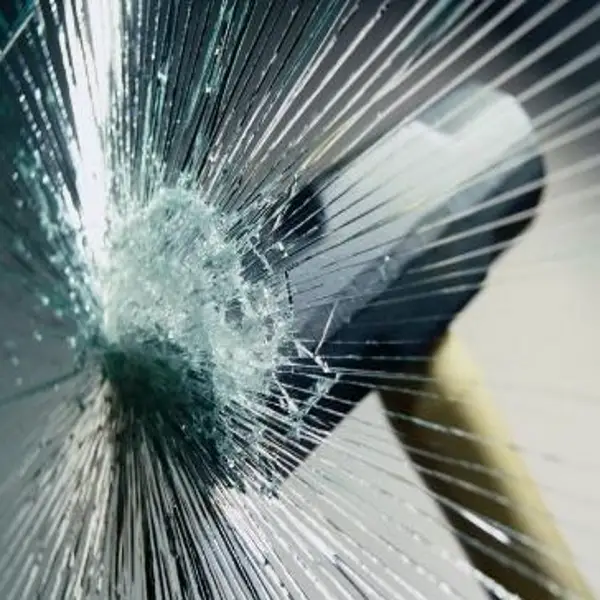In the automotive industry, safety is a top priority, and one area that plays a significant role in ensuring that safety is the integrity of a vehicle’s glass. From the windshield to the side windows, the glass in your car not only provides visibility but also contributes to the overall structural integrity and crashworthiness of the vehicle. One of the most important attributes of automotive glass is its impact resistance. This characteristic helps protect you and your passengers in the event of an accident, ensuring that the glass can withstand external forces and prevent harm. Understanding how auto glass impact resistance keeps you safe can provide valuable insight into how this crucial feature functions and why it’s so important in modern vehicles.
What Is Impact Resistance in Auto Glass?
Impact resistance refers to the ability of a material to withstand force or pressure without breaking, cracking, or shattering. In the context of automotive glass, this characteristic is essential because the glass needs to withstand the forces encountered during impacts, whether from accidents, debris, or other external factors. Automotive glass, particularly windshields, is designed to absorb and disperse energy from collisions, reducing the likelihood of injury and preventing sharp glass fragments from causing harm to the vehicle’s occupants.
There are different types of glass used in vehicles, including laminated glass (commonly used for windshields) and tempered glass (used in side and rear windows), both of which play a role in impact resistance but function differently. Laminated glass, for instance, has a layer of polyvinyl butyral (PVB) sandwiched between two layers of glass, which helps keep the glass intact in the event of a collision. Tempered glass, on the other hand, is designed to shatter into small, blunt pieces rather than sharp shards upon impact.
Both types of glass are essential for vehicle safety, and the combination of their impact resistance properties ensures that drivers and passengers are protected during a range of collision scenarios.
The Role of Impact-Resistant Auto Glass in Vehicle Safety
Auto glass plays a pivotal role in a vehicle’s safety features. It provides much more than just visibility—it helps support the vehicle’s structural integrity, protect passengers from debris, and prevent injuries during a crash. Here are several key ways that impact-resistant auto glass contributes to vehicle safety:
- Protection from Ejection During Accidents
One of the most dangerous risks during a vehicle collision is the possibility of passengers being ejected from the vehicle. During a crash, if the glass shatters or is displaced, passengers can be thrown from the vehicle, potentially leading to severe injuries or fatalities. Impact-resistant glass, such as laminated windshields, significantly reduces this risk by ensuring that the glass stays intact, even when it cracks. The PVB layer in laminated glass holds the two layers of glass together, preventing the glass from completely separating from the frame and keeping occupants inside the vehicle during a collision. - Preventing Injury from Shattered Glass
In traditional, untreated glass, the shards that break off in the event of a collision can be extremely sharp and dangerous. This poses a risk to both the occupants of the vehicle and anyone else in proximity. Impact-resistant glass, especially laminated glass, minimizes this risk by preventing the glass from shattering into sharp fragments. When the glass cracks, it stays together due to the PVB layer, which helps to ensure that shards do not become projectiles. This feature is crucial for reducing the risk of cuts and puncture wounds during accidents. - Improved Protection Against Flying Debris
Auto glass also serves as a protective barrier against flying debris during a collision. If a vehicle collides with an object or another car, debris from the impact may strike the glass. Impact-resistant auto glass helps prevent these objects from penetrating the vehicle, protecting passengers from harm. The glass’s ability to resist shattering means that even when an object strikes it, the glass holds firm, reducing the risk of injury caused by sharp or heavy debris. - Windshield Integrity and Structural Support
The windshield in particular is a critical part of a vehicle’s safety design. It not only provides a clear line of sight for the driver but also acts as an essential component of the vehicle’s structural integrity. In a rollover accident, for example, the windshield helps to support the vehicle’s roof, preventing it from caving in and causing harm to the occupants inside. Impact-resistant auto glass, particularly laminated glass, is designed to maintain its integrity even under pressure, ensuring that the windshield remains intact and continues to provide structural support during a crash.

- Reduced Risk of Cracking During Minor Impacts
While major collisions are the most concerning when it comes to auto glass impact, even minor impacts can result in damage. Small rocks, road debris, or even an accidental bump can cause cracks in your windshield or side windows. Impact-resistant glass, such as tempered glass, is designed to handle these minor impacts better than traditional glass. When tempered glass is impacted, it breaks into small, rounded pieces that are less likely to cause injury. Additionally, the resilience of impact-resistant auto glass helps reduce the likelihood of cracks spreading, which can further compromise the integrity of the glass. - Helps Maintain Cabin Climate and Comfort
While primarily designed for safety, impact-resistant glass also contributes to the overall comfort of the vehicle. For instance, laminated glass has soundproofing qualities that help reduce noise from the outside, such as road noise or wind, improving the overall driving experience. This is particularly beneficial for long-distance drivers or those who spend a significant amount of time in their vehicles. - UV Protection
Another benefit of laminated glass is its ability to block harmful ultraviolet (UV) rays. UV rays can cause both damage to the interior of your vehicle and harm to your skin. The PVB layer in laminated glass can block up to 99% of harmful UV rays, helping to keep the vehicle’s interior from fading and ensuring that the passengers are better protected from prolonged sun exposure.
The Different Types of Auto Glass and Their Impact Resistance
Not all auto glass is created equal. Depending on the type of glass and how it is treated, the impact resistance properties can vary. Here are the two main types of auto glass used in modern vehicles:
- Laminated Glass
Laminated glass is primarily used in windshields. This type of glass consists of two layers of glass with a plastic PVB layer sandwiched between them. This design provides excellent impact resistance and keeps the glass intact, even in the event of an accident. Laminated glass is ideal for preventing ejection, reducing the risk of injury from flying shards, and supporting the vehicle’s roof during a rollover. In addition to its protective qualities, laminated glass also helps to block UV rays and reduce external noise, making it a great all-around option for improving vehicle safety. - Tempered Glass
Tempered glass is used for side and rear windows. Unlike laminated glass, tempered glass is designed to shatter into small, rounded pieces when impacted. While this might seem counterintuitive, it is actually a safety feature. The small, blunt pieces of tempered glass are less likely to cause injury than large shards of traditional glass. Tempered glass is much stronger than regular glass and can withstand significant impacts before breaking. However, it is more prone to shattering into pieces compared to laminated glass, making it more suitable for areas of the vehicle where safety concerns about flying shards are less critical.
The Importance of Professional Auto Glass Services
Given the essential role that impact-resistant auto glass plays in vehicle safety, it is crucial to maintain your vehicle’s glass in good condition. Cracked or chipped windshields can compromise the effectiveness of impact-resistant glass and reduce its ability to protect you in the event of a collision. If you notice any cracks or chips in your windshield or other auto glass, it’s important to seek professional help as soon as possible.
At Ryana Automotive, experts are available to assess your vehicle’s glass and perform necessary repairs or replacements. Properly maintaining the integrity of your auto glass is essential for your safety, and ensuring that it remains in top condition can provide peace of mind on the road.
Conclusion
Auto glass impact resistance is a crucial element of vehicle safety. From preventing injuries from shattered glass to providing structural support during collisions, impact-resistant glass ensures that you and your passengers remain as safe as possible in the event of an accident. Whether you are driving a high-performance sports car or a family sedan, the role of high-quality auto glass cannot be overstated.
By understanding how impact-resistant glass works, you can make informed decisions about your vehicle’s safety features. If you notice damage to your vehicle’s glass, be sure to seek professional services to ensure your vehicle remains as safe as possible. For top-notch auto glass services and expert advice, turn to Ryana Automotive, your trusted partner for all things related to automotive glass and collision repair.

Welcome to Ryan Automotive Inc